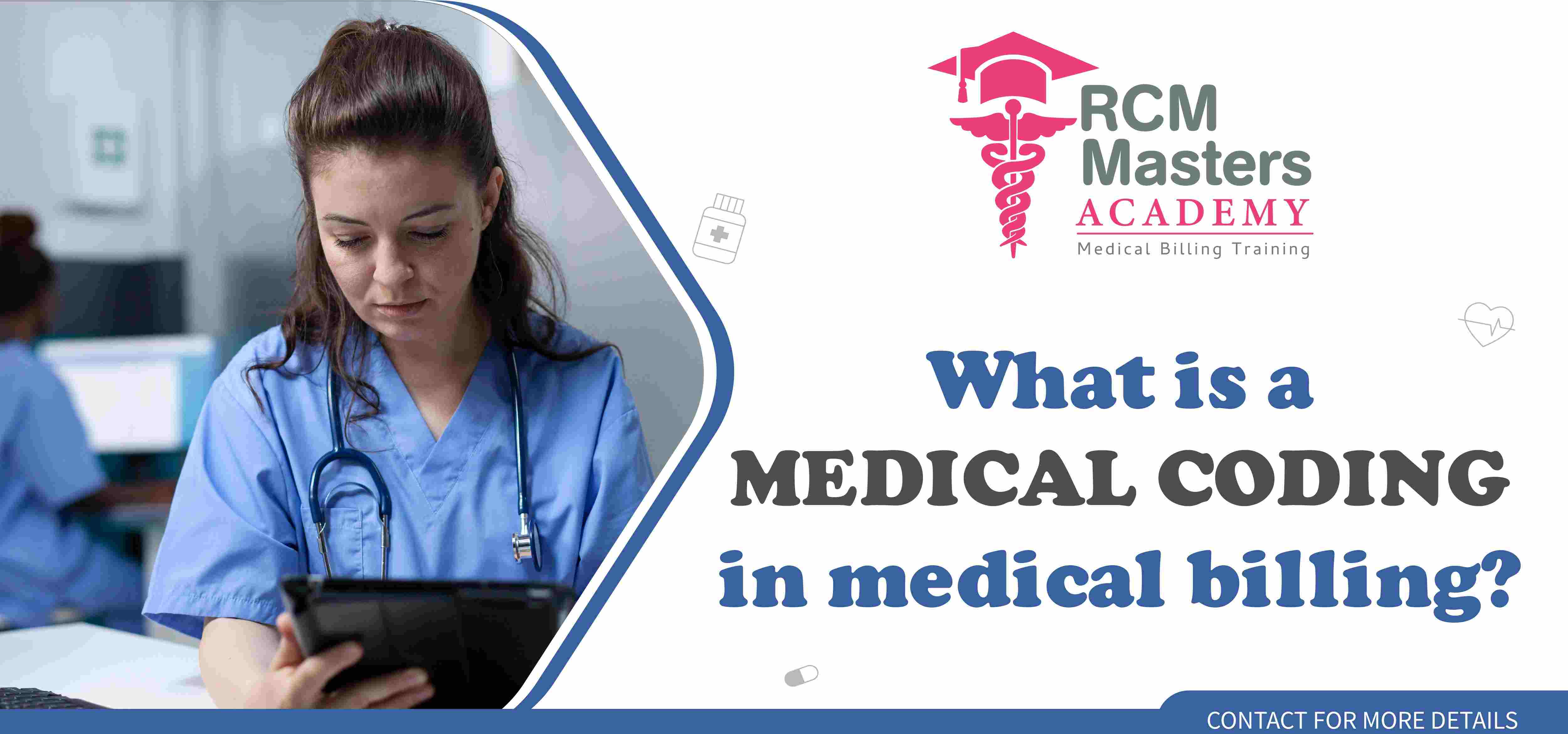 info@rcmmastersacademy.com
info@rcmmastersacademy.com

Medical coding is the process of transforming medical diagnosis, procedures, and equipment into universal alphanumeric codes to facilitate accurate billing and record-keeping. Medical coding is crucial in medical billing as it ensures that healthcare providers receive accurate reimbursement for the services they render to patients. The coding system used in medical billing is based on the Current Procedural Terminology (CPT) and International Classification of Diseases (ICD) coding systems.
CPT codes are used to identify medical procedures and services, while ICD codes are used to diagnose and classify diseases and related health conditions. These codes are standardized and regulated by the American Medical Association (AMA) and World Health Organization (WHO), respectively. The use of standardized codes is important because it reduces errors and ensures that healthcare providers are reimbursed appropriately for their services.
Medical coding professionals, also known as medical coders, are responsible for assigning these codes to medical procedures and diagnoses. They work in various healthcare settings, including hospitals, physician offices, and insurance companies. Medical coders must have a thorough understanding of medical terminology, anatomy, and physiology to accurately assign codes. They also need to be familiar with coding guidelines and regulations to ensure compliance with the law.
In addition to assigning codes, medical coders also play a vital role in medical billing. Once the codes have been assigned, medical coders prepare and submit claims to insurance companies and other third-party payers. They work closely with healthcare providers to ensure that claims are submitted accurately and in a timely manner. They also follow up with insurance companies to resolve any claim issues or denials.
The accuracy of medical coding is critical in medical billing. Any errors or omissions in coding can lead to claim denials or delays in reimbursement. This can result in significant financial losses for healthcare providers. Moreover, inaccurate coding can compromise patient care, as it can lead to incorrect diagnoses, treatments, and medication orders.
To ensure accurate and timely coding, medical coders undergo specialized training and certification. There are several professional organizations that offer certification programs, including the American Academy of Professional Coders (AAPC) and the American Health Information Management Association (AHIMA). Certification programs typically include coursework in anatomy, physiology, medical terminology, and coding guidelines. Medical coders must also stay up-to-date with the latest coding changes and regulations by participating in continuing education programs.
In conclusion, medical coding is an essential component of medical billing. It ensures that healthcare providers are reimbursed accurately for the services they render to patients. Medical coders play a crucial role in this process by assigning codes to medical procedures and diagnoses, preparing and submitting claims, and following up with insurance companies. Accurate and timely coding is critical in maintaining the financial viability of healthcare providers and ensuring the best possible patient care.
You can enroll for our Online Medical Billing Training here: